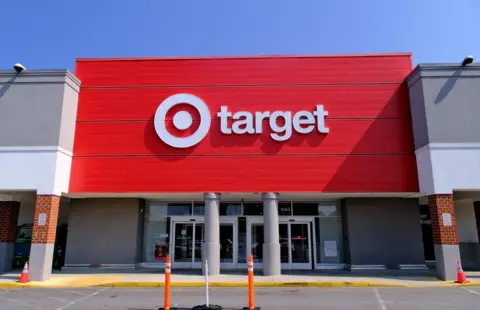In recent developments, retail giant Target has announced a significant leadership change aimed at revitalizing its sales figures. The company has appointed Michael Fiddelke, the current Chief Operating Officer, as its new Chief Executive Officer, succeeding Brian Cornell, who has held the position for a decade. This transition is set to take place in February of the upcoming year, as Target grapples with a decline in sales and share prices amidst rising operational challenges.
Under Brian Cornell’s leadership, Target experienced transformative growth but has now found itself facing headwinds related to macroeconomic factors such as increasing prices and the ongoing repercussions of U.S. tariffs. These conditions have raised concerns over consumer spending, particularly in discretionary categories such as clothing and electronics, which are crucial for the company’s profitability. Following the announcement of Fiddelke’s appointment, Target’s shares dipped nearly 11% before experiencing a slight recovery, highlighting investor uncertainties about the company’s future trajectory.
Fiddelke’s appointment signifies a return to Target’s practice of promoting executives from within the organization. He has been with the company for 20 years, yet this move marks a departure from Cornell’s tenure, who was the first external hire for the CEO position. Fiddelke expressed that the company has “work to do” and emphasized the necessity for Target to adapt and move “faster, much faster” in response to the competitive retail landscape. This suggests a heightened urgency for operational improvements, particularly concerning product quality and the integration of technology to enhance the shopping experience.
Target’s brand is synonymous with value, offering an array of affordable products from clothing to groceries. However, in recent months, the company has witnessed subpar sales performance, attributable largely to intense competition from online retailers like Amazon as well as traditional rivals such as Walmart. The stagnant share prices reflect broader investor concerns about Target’s ability to navigate the challenging retail environment, especially as the company is struggling to rebound from a 5.7% sales decrease noted in the last earnings report.
Industry analysts have voiced mixed reactions to the leadership change. Susannah Streeter, head of money and markets at Hargreaves Lansdown, suggested that investors might find Fiddelke’s internal appointment somewhat underwhelming. There was speculation that selecting a successor from a competing firm could have brought fresh perspectives and innovation to Target during a critical juncture. Similarly, analyst Michael Baker at DA Davidson noted that the announcement lacked the excitement that often accompanies external hires, pointing to potential limitations in the internal promotion strategy.
In addition to sales slumps, Target faced backlash earlier this year after altering its approach to diversity, equity, and inclusion targets, an issue that likely contributed to consumer discontent. The company’s struggles in maintaining sales growth have been further complicated by external factors such as trade tariffs, which have reshaped the retail landscape and consumer habits. Amidst these challenges, Fiddelke’s commitment to improving product offerings and technological integration will be crucial as Target seeks to rejuvenate its brand.
In conclusion, the transition in leadership at Target encapsulates both the challenges faced by entrenched retail giants and the strategies they must adopt to remain relevant. As Michael Fiddelke prepares to take the helm, his effectiveness will likely be measured by the company’s ability to respond to the competitive retail environment, enhance consumer trust, and drive sales growth in an increasingly complex market. The coming months will reveal whether this new direction can successfully steer Target back to growth and profitability in the current economic landscape.












